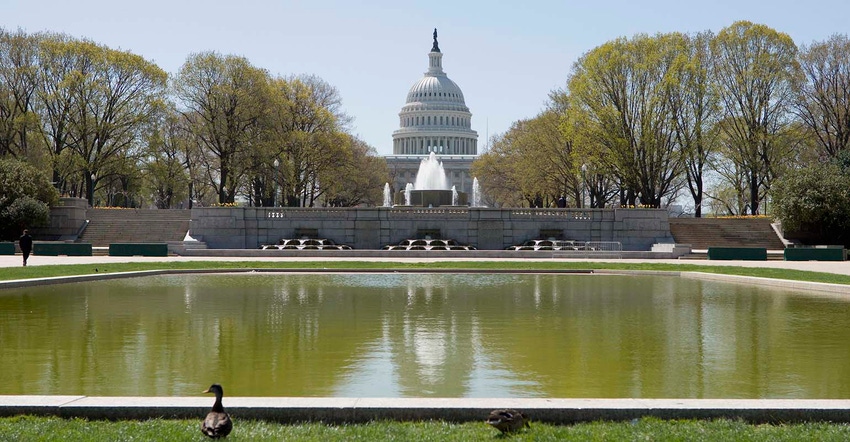
Commentary
On January 13, 2017, the U.S. Supreme Court granted a request by the National Association of Manufacturers (NAM) to decide whether a federal court of appeals or a federal district court has the power to review EPA’s Waters of the United States (WOTUS) regulations. Farmers and ranchers are impacted by the WOTUS rule.
Sixteen months have passed since EPA and the Corps of Engineers issued the WOTUS regulation. Unbelievably, no final brief on the merits has been filed, which explains the scope of federal authority to regulate water.
The issue will have enormous impact on whether farmers and ranchers will need permits to develop their land which may contain water.
In arguments that only lawyers love, NAM asserts a decision on the case has been held up because of “…an esoteric and wasteful debate over where the challenges to Rule belong. The crux of the problem is the judicial review provision of the Clean Water Act…. That provision funnels review of certain types of agency action directly to courts of appeal, leaving other challenges to be brought in the [U.S.] district courts under the Administrative Procedure Act.”
NAM, in its brief to the Supreme Court, describes this dispute as simply between two levels of federal courts.
Which court will rule?
EPA and the Corps want to have a federal circuit court decide the case. In fact, a U.S. District Court in West Virginia did hold that the 6th Circuit Court of Appeals had exclusive jurisdiction over EPA rule challenges. However, on the same day, a U.S. District Court in North Dakota claimed it had jurisdiction to review EPA’s WOTUS rule.
The North Dakota court observed that “[i]f the exceptionally expansive view of that provision [Section 509 CWA] advocated by the government is adopted it would encompass virtually all EPA actions under the Clean Water Act.” EPA has requested the North Dakota District Court to dismiss the case and it has refused to do so. The decision being appealed to the U.S. Supreme Court from the 6th Circuit was split 1-1-1. The Court of Appeals panel “…produced three separate and incommensurate opinions addressing whether it has jurisdiction to consider rule challenges. And the judge who cast the deciding vote in favor of court of appeals jurisdiction did so not because he thought that result was the correct application of the statute, but because he felt himself bound by a circuit precedent that he deemed wrongly decided…”
As you can see, this dispute among judges is simply intolerable.
Important to landowners
The scope of what WOTUS covers is exceedingly important to landowners. WOTUS, according to EPA, was to clarify what constituted a water of the U.S. NAM and other plaintiffs believe the WOTUS rule “…violates this Court’s precedents, is deeply flawed both in substance and procedurally, and consequently violates the Administrative Procedure Act (APA).”
The NAM brief points out the silliness that has developed to delay a ruling on the merits. NAM’s brief further claims, “Immediate review thus would serve the interests of regulators and regulated alike by ensuring that a merits decision actually resolves the merits and is not upended by a legal error over jurisdiction.”
Even though NAM and other CWA litigants deserve an answer to the jurisdictional mess created by the 6th Circuit, it appears that new leadership brought in by the Trump administration may end this painful episode before the U.S. Supreme Court has a chance to rule.
The opinions of the author are not necessarily those of Farm Futures or Penton Agriculture.
Gary Baise, a principal at OFW Law, specializes in Clean Water Act (CWA), Clean Air Act (CAA), National Environmental Policy Act (NEPA), Federal Insecticide, Fungicide and Rodenticide Act (FIFRA), and Solid Waste Disposal Act (SWDA) litigation as well as agricultural corporate governance issues. He serves as general counsel for U.S. Grains Council, Agricultural Retailers Association (ARA), National Association of Wheat Growers (NAWG), and National Sorghum Producers (NSP). Gary was the first Chief of Staff to the first U.S. Environmental Protection Agency (EPA) Administrator. He owns a family farm in Jacksonville, Ill.
About the Author(s)
You May Also Like




